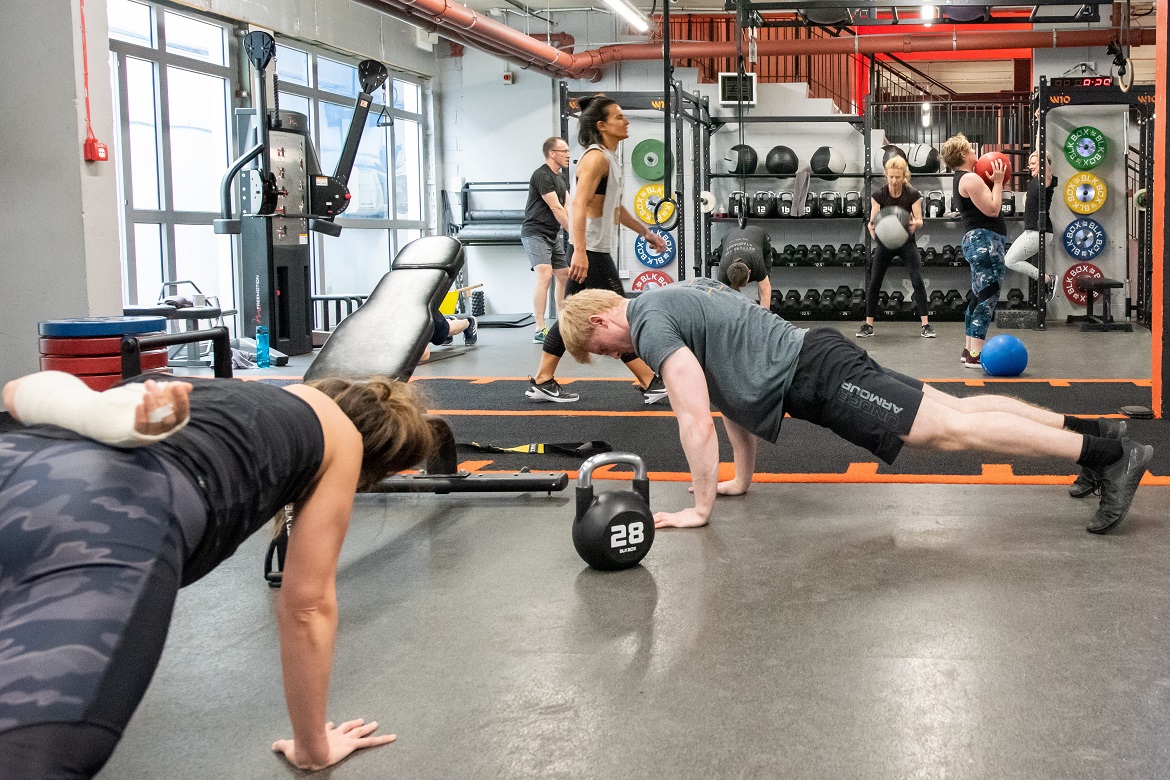
Categories
Training Through Injury
If you’re reading this and have been training for a while, chances are you’ve experienced a niggle or injury at some point. Or, if you’re completely new to training, there’s a high chance that you’ll get a set back with an injury at some point down the line.
We’re not invincible after all and while there is a lot that we can do to prevent injury. Keep our bodies strong and healthy in the long term, getting some kind of injury in our life is almost inevitable. When injury strikes, it sucks, but when exercise is a big part of your life, the frustration of being injured feels even greater.
A guide to keeping your mind and body in check
Speaking from my own personal experience, a recent hip injury came as a big blow. For someone who trains regularly, at a pretty high intensity and enters many competitions, you can imagine what it feels like when the ability to train is taken away by an injury.
I made the tough decision to pull out of several competitions this year, and it took a fair bit of mental conditioning to get to a point where I see things from a new perspective and have my training mojo back again.
5 Tips for training when injured
Outlined below are some tips to consider when you experience an injury. Take encouragement in the fact you can still train, even when our bodies aren’t performing optimally.
Pain isn’t normal: Listen to your body and respect it
This first point is an important one. When you experience pain, and things don’t feel right, there’s probably a reason for that. There’s a difference between muscles working hard and experiencing pain in the joint itself. If this is a one-off occurrence, fine, but if you notice that it’s not getting any better and that training makes it feel worse this is not something to be ignored.
The truth is, you’re not a professional athlete, so you don’t need to train through pain. The priority for us is being strong and fit for life. Longevity is the goal. Don’t just keep pushing through thinking it’ll be alright– as you’re likely doing more harm than good.
It’s important to work out what’s causing the injury. If you’re not sure what the cause is and you’re in pain, you probably need to seek help from an expert. Someone who can look at your injury and establish the root of your problem.
Additionally, being coached by expert trainers who are experienced and can read your body, it’s limitations and movement dysfunctions will undoubtedly help. They will be able to give you the tools to work on your imbalances and weakness, which should prevent more injuries in the long term.
Don’t stress about training progress. The focus here is your recovery
When injury strikes, the important thing is not to panic and worry that all your hard work is going to be undone.
A week or two off your regular training plan isn’t a major setback. Whether you’re injured or not, recovery is just as important as training and it could be the thing that you’ve neglected until now.
Training hard, working hard, having busy social lives with a significant lack of sleep are things we see with our clients all too often.
Having a little rest might be just what your body needs. In fact, recovery, particularly in terms of sleep, is where the good stuff happens and all the growth and adaptations to training take place. You might even call it:
Invisible Training.
To quote one of the UK’s top strength coaches, Nick Grantham.
Adaptations for body composition and strength all happen when we recover properly. Use this as a time for some self-care. Instead of intense training sessions, try some active recovery with light cardio and mobility. Taking some time out will likely make you stronger when you come back.
You might need to look more closely at your nutrition
Depending on how much you were training, and the intensity of your workouts you may not be expending quite as much energy as you were pre-injury. In addition to this, the nature of your injury might mean that you aren’t as active outside of the gym.
If you’ve injured your lower body, your daily steps are likely to be a lot lower than before, which will also mean you’re burning fewer calories. It’s a good time to look at your daily calorie needs and perhaps adjust these according to your goals so that while you’re injured your body composition doesn’t change too much. Aside from the energy needs alone, in the process of recovery, you need to focus on nourishing your body.
The priority is ensuring you stay strong and your immune system doesn’t suffer. This means eating a variety of whole foods, with plenty of colourful fruits and vegetables to get a healthy dose of vitamins and minerals, and enough protein to make sure that you retain muscle mass and recover fully.
There’s always something that you can do
Sometimes the mental frustration of injury is just as much, if not more, of a factor in your recovery process.
It’s completely normal to feel discouraged in the face of injury and to feel disheartened that you’re no longer able to perform like were before. It may feel that your progress on the gym floor has come to a halt, or the event that you were working towards is no longer on the cards.
However, this doesn’t mean that training has to stop completely, far from it. Whatever injury you’re dealing with, they’ll always be some kind of training that you can do. For example, instead of looking at what you can’t do with a broken foot; look at how you can get your upper body strong.
You can work on different areas of fitness too. If you have mainly been strength training and your injury has meant you can’t lift weights for a while, try improving your engine with more aerobic work (your strength training will benefit from this too).
Look at learning a new skill or movement pattern that you’ve not done before to keep things interesting and give your body a new training stimulus. Once you frame injury differently and look at all the things you can do, you’ll start to feel more positive and the motivation to train will still be there.
Acknowledging that training doesn’t always go to plan
Even without injury, the motivation to train might not always be there. This is also true for those of us who really love training! An injury can be a time when you feel somewhat less enthusiasm to workout. That’s fine, it’s completely normal not to feel ‘on it’ all the time.
When motivation wanes, you need to make sure you have a plan in place to stay disciplined in a routine. It might mean that you aren’t training as much as before you were injured, but you need to try and stay consistent with getting some movement/training sessions in.
So, whether you replace your lifting session with a swim or your run for a yoga class. Dedicating time to moving will serve your body well in recovering faster. Keeping the body as active as possible helps with blood flow and adaptations, speeding up the recovery process.
Remember…
Injury can be a frustrating time. It’s okay to feel disappointed with your current situation. Remember to listen to your body.
However, you need to think beyond the short term when it comes to training. A few sessions of pushing through pain vs. taking some time to recover and address what’s causing the injury is key for long term health.
Use it as an opportunity to cross-train, learn a new skill and look after yourself with adequate recovery and nutrition. Chances are you’ll come back with a new perspective and renewed motivation in the long run.
If you have any questions on the above or would like some advice on how we could help you with your fitness goal, don’t hesitate, visit our gym and try one of our personal fitness training sessions.


